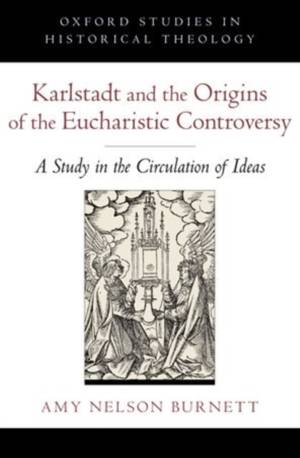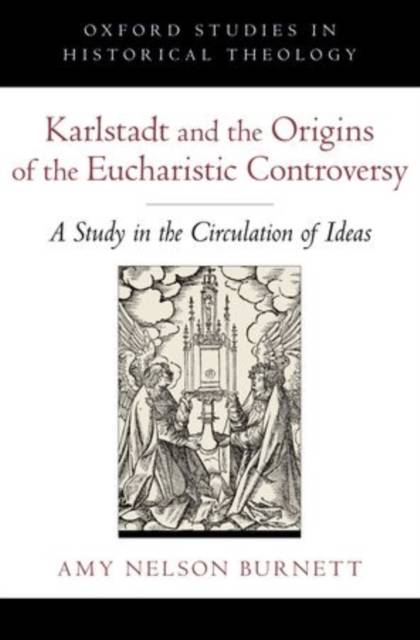
Bedankt voor het vertrouwen het afgelopen jaar! Om jou te bedanken bieden we GRATIS verzending (in België) aan op alles gedurende de hele maand januari.
- Afhalen na 1 uur in een winkel met voorraad
- In januari gratis thuislevering in België
- Ruim aanbod met 7 miljoen producten
Bedankt voor het vertrouwen het afgelopen jaar! Om jou te bedanken bieden we GRATIS verzending (in België) aan op alles gedurende de hele maand januari.
- Afhalen na 1 uur in een winkel met voorraad
- In januari gratis thuislevering in België
- Ruim aanbod met 7 miljoen producten
Zoeken
Karlstadt and the Origins of the Eucharistic Controversy
A Study in the Circulation of Ideas
Amy Nelson Burnett
€ 273,95
+ 547 punten
Omschrijving
The debate over the Lord's Supper had momentous consequences for the Reformation, causing the division of the evangelical movement, influencing the formation of political alliances, and contributing to cultural differences among the Protestant territories of Germany and Switzerland. Karlstadt and the Origins of the Eucharistic Controversy is the first full-length study of the beginning of that debate. Going beyond the traditional focus on Martin Luther and Ulrich Zwingli, it emphasizes the diversity of the "sacramentarian" challenge to traditional belief in Christ's corporeal presence in the bread and wine of the Eucharist, and it re-evaluates the significance of Luther's colleague, Andreas Bodenstein von Karlstadt, for the debate. Burnett describes Luther's earliest criticisms of the mass and the efforts in Wittenberg to reform liturgical praxis to correspond with his ideas. She then looks at pamphlets written by other reformers to show how Luther's understanding of the sacrament was adapted and modified outside of Wittenberg. Ultimately, Burnett shows how Karlstadt's eucharistic pamphlets introduced into the public debate arguments that would become standard Reformed criticisms of the Lutheran position. The book also demonstrates the influence not only of Erasmus but also of John Wyclif and the Hussites for discussions of the sacrament, highlights the role of the reformers of Basel and Strasbourg for developing the "Zwinglian" understanding of the Lord's Supper, and draws attention to the early eucharistic theology of the Silesians Kaspar Schwenckfeld and Valentin Krautwald. This book will be an indispensable guide for readers seeking to understand the issues surrounding the outbreak of the eucharistic controversy in the sixteenth century.
Specificaties
Betrokkenen
- Auteur(s):
- Uitgeverij:
Inhoud
- Aantal bladzijden:
- 252
- Taal:
- Engels
- Reeks:
Eigenschappen
- Productcode (EAN):
- 9780199753994
- Verschijningsdatum:
- 1/04/2011
- Uitvoering:
- Hardcover
- Formaat:
- Genaaid
- Afmetingen:
- 156 mm x 234 mm
- Gewicht:
- 566 g

Alleen bij Standaard Boekhandel
+ 547 punten op je klantenkaart van Standaard Boekhandel
Beoordelingen
We publiceren alleen reviews die voldoen aan de voorwaarden voor reviews. Bekijk onze voorwaarden voor reviews.









